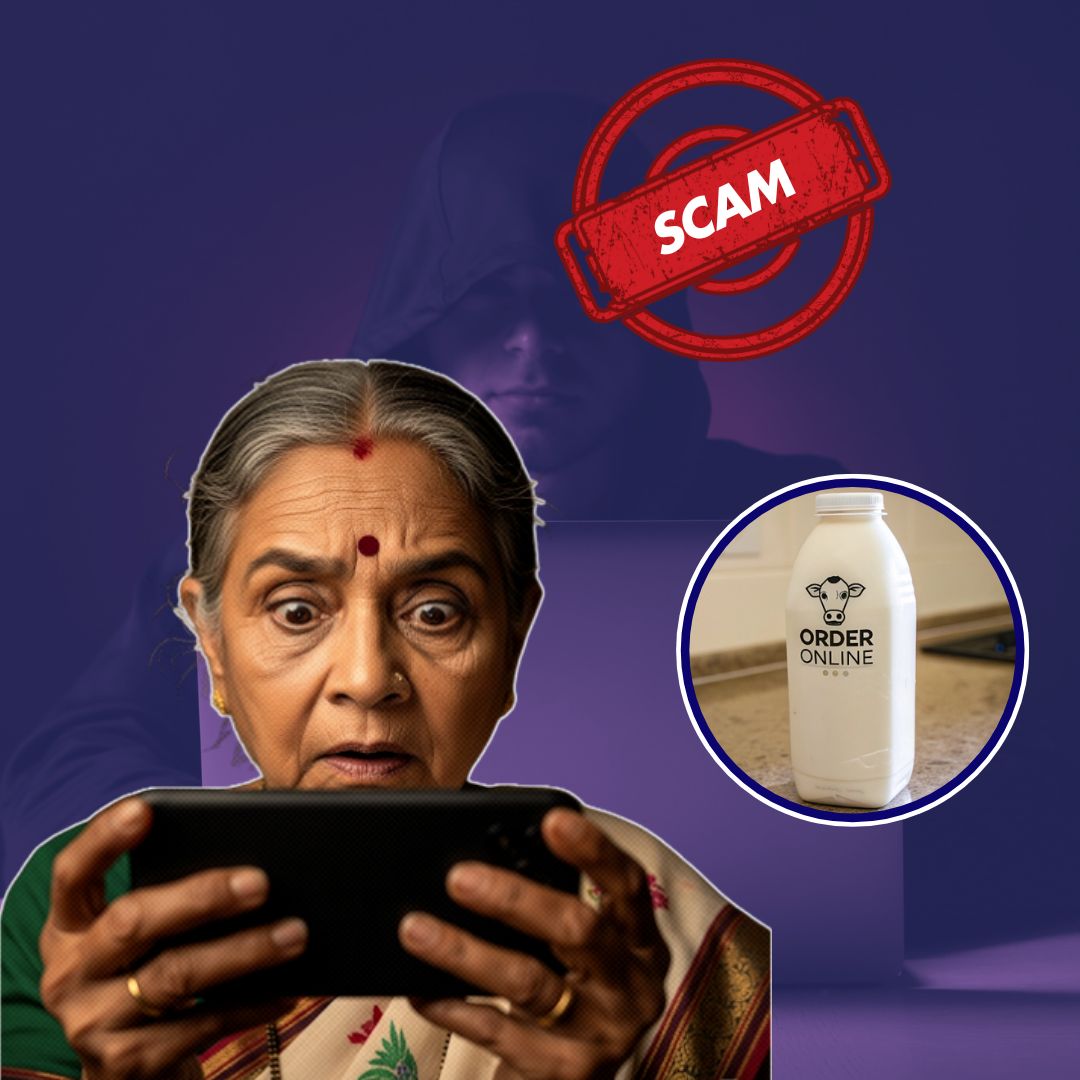A 71-year-old woman from Wadala, Mumbai, lost a staggering ₹18.5 lakh after falling victim to an elaborate online milk order scam earlier this month.
The woman was deceived through phone calls from a man posing as a milk delivery executive who convinced her to share personal and banking details via a fraudulent link. Over two days, the scammers remotely accessed her phone and drained her savings from three bank accounts.
Mumbai police have registered an FIR, launched a thorough investigation, and issued warnings to the public to stay vigilant against such sophisticated cyber frauds.
How the Scam Played Out
On August 4, the elderly woman placed an order for milk online. Shortly after, she received a call from an individual identifying himself as “Deepak,” claiming to be an executive from the milk company. He convinced her not to hang up while she was directed to fill a form through a link he sent.
The conversation lasted over an hour, during which he coaxed her into sharing sensitive information. The next day, the caller followed up to collect more details. Exploiting this data, the fraudsters remotely controlled her phone and systematically siphoned off ₹18.5 lakh from three bank accounts linked to her.
She became suspicious when she found ₹1.7 lakh missing during a routine bank visit, and the full extent of the theft was realized soon afterward. Police intervened promptly after the suspicious transaction alerts and continue to investigate the perpetrators, urging citizens to be cautious.
The Rising Threat of Cyberfraud in Everyday Transactions
This incident highlights a growing vulnerability in common digital transactions, particularly among senior citizens who may be less familiar with technology. Scammers are increasingly sophisticated, combining social engineering, fear tactics, and remote access software to manipulate victims into surrendering personal data and funds.
By masquerading as trusted company officials, they exploit routine activities like grocery or milk delivery to establish familiarity and credibility. Authorities are stepping up efforts to educate the public about these threats but acknowledge the difficulty in fully curbing them given technological complexities and psychological manipulation involved.
Expert Advice to Stay Safe Online
Cybersecurity experts emphasise that no legitimate company will ever ask customers to share OTPs, passwords, or complete transactions by clicking on unsolicited links. They advise verifying caller identities by calling official company numbers before providing any information.
If a link is shared, customers should avoid clicking unless it originates from an official app or website. Enabling two-factor authentication (2FA) on banking and payment apps adds a vital layer of security. Regularly monitoring bank statements for unauthorised transactions and immediately reporting suspicious activity to banks and law enforcement can prevent further losses.
Family members, especially of older adults, should also take proactive steps to educate and guide vulnerable relatives about such scams.
The Logical Indian’s Perspective
The Mumbai milk scam serves as a stark reminder that while digital technology has made everyday life more convenient, it has also created new avenues for fraud and exploitation, especially targeting seniors and vulnerable groups.
Addressing this requires more than just technical solutions, it calls for collective empathy, patience, and community-driven education to foster digital literacy. We must build an environment where vulnerable individuals feel supported and protected, and where information flows freely to empower safer choices.
How can communities and individuals best unite to protect each other from such deceptive threats? Your insight and dialogue can spark the positive change we all need.











